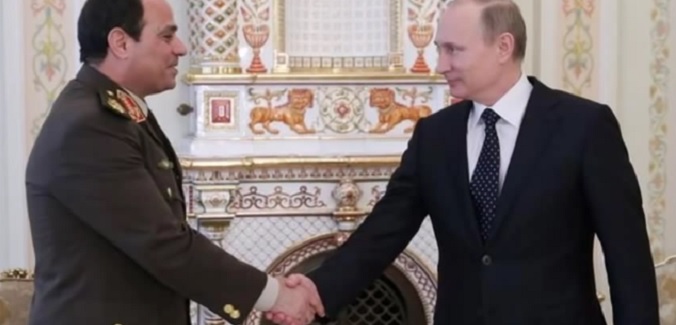South African security site DefenceWeb on Monday rounded up developments surrounding last week’s announcement by Sen. Patrick Leahy (D-VT) that he would block additional security assistance to the Egyptian army as a result of his “growing dismay” at Cairo’s heavy-handed tactics against the Muslim Brotherhood, a move that came after the Obama administration had publicly committed to partially unfreezing its own halt in aid, which had in turn been widely blasted for risking bilateral relations while having little chance of affecting Egyptian calculations.
Close military ties between Washington and Cairo had for decades granted American forces a range of preferential arrangements seen as crucial to enhancing American air and naval operations in the region:
For decades the Egyptians have helped the American military in ways that are largely unknown to the American public, said Robert Springborg, a professor at the Naval Postgraduate School in Monterey, Calif., and an expert on the Egyptian military. Mr. Springborg noted that in the run-up to the invasion of Iraq in 2003 — after the Turkish Parliament refused to allow the American military to use Turkish territory for crossing into Iraq from the north — Egypt gave the Pentagon immediate access for two aircraft battle groups and accompanying aircraft through the Suez Canal and across its territory.
Given the number of countries in the region that do not allow American military overflights, especially for combat missions, Egypt’s location makes it a vital, and relatively direct, access route to an unstable crescent of strategic importance.
Analysts from across political and ideological lines had criticized the administration for creating a vacuum that could be filled in by other powers or, more worryingly, by geopolitical rivals.
Tom Nichols and John R. Schindler, foreign policy scholars who by their own descriptions agree on almost nothing, described the freeze as undermining “nearly seven decades” of bipartisan American efforts aimed at “limiting Moscow’s influence” in the Middle East.
Yiftah Shapir, Zvi Magen, and Gal Perel – researchers from Israel’s Institute for National Security Studies – last week described a recently announced a deal under which Egypt would purchase Russian Mig-29s as “an alarm for decision makers in Washington” regarding a potential Egyptian pivot toward Moscow:
If the arms deal between Egypt and Russia is completed, it will represent a significant event in the Middle East strategic picture, another sign of reduced United States involvement in the region. For Russia, this would be a meaningful strategic achievement in its global struggle against the West. For Israel, one or two squadrons of aircraft such as the MiG-29 would not have much tactical significance. At the same time, the strategic significance could be decisive if the conflict between Russia and the West escalates and Russia gains an additional foothold in Egypt.
Gulf countries meanwhile seen intent on taking the sting out of any aid cuts, and Reuters on Monday revealed that Gulf oil producers have in less than a year provided Egypt with roughly $6 billion worth of free fuel.
[Photo: FlipMedia / YouTube]




